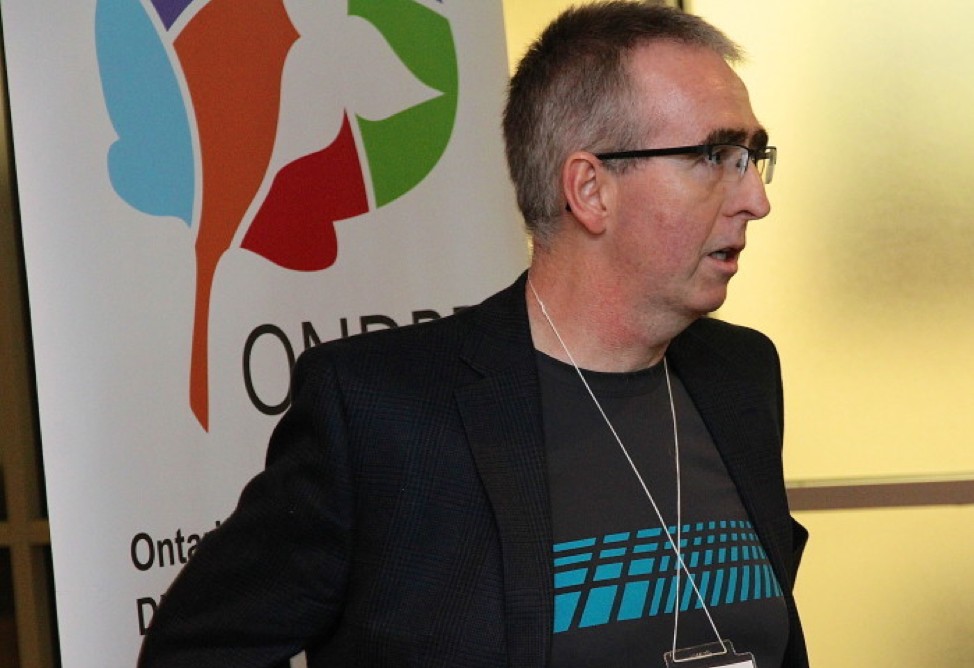CFMM Plays a Key Part in ONDRI Study
January 27, 2016

Part of the Ontario Neurodegenerative Disease Research Initiative (ONDRI) Integrated Discovery Program, leading ophthalmology researcher Chris Hudson joined a team of Western researchers at Robarts Research Institute Wednesday to see first-hand some of the unique imaging work happening in London.
While not his main area of expertise, Chris Hudson has a vested interest in the neurodegenerative disorder research being explored at Robarts Research Institute.
A leading researcher in ophthalmology, Hudson was diagnosed with early-onset Parkinson’s when he was 41 years old. Told he had only six years before the disease would take away his ability to continue his work as associate director for research in the University of Waterloo’s School of Optometry and Vision Science, Hudson is going strong 12 years later.
Part of the Ontario Neurodegenerative Disease Research Initiative (ONDRI) Integrated Discovery Program, Hudson is excited to see the work being led by Western researchers. He was at Robarts Wednesday to see first-hand some of the unique imaging work happening in London.
“I’m not an expert on Parkinson’s, but I am an expert on living with Parkinson’s,” he said. “ONDRI represents the beginning of the end of neurodegenerative diseases. But it’s only the beginning.”
The ONDRI is a research program studying how to improve the diagnosis and treatment of Alzheimer’s disease, Parkinson’s disease, amyotrophic lateral sclerosis (ALS), frontotemporal lobar degeneration and vascular cognitive impairment in an Ontario-wide collaboration.
Along with London, the initiative, led by Schulich School of Medicine & Dentistry Dean Michael Srong, has more than 20 participating clinical, academic and research centres in Hamilton, Kingston, Ottawa and Toronto.
Strong said ONDRI is the first study of its kind in the world to collect large amounts of data on a spectrum of neurodegenerative disorders.
“It’s the most complex long-term observational study in the world,” he said. “It brings together a large group of more than 50 investigators from across the province of Ontario, four patient advocacy groups, and the industrial sector.”
ONDRI aims to enrol 600 participants across the province in 2015 that will participate in an array of assessments. These include magnetic resonance imaging and positron emission tomography brain scans, eye-tracking, blood and gait analysis, and cognitive testing.
All of the collected data is being entered into a central database expected to answer a variety of different research questions related to diagnosis and treatment of these disorders.
The Ontario Brain Institute will invest $19 million in new funds during the next five years to ONDRI. Partner institutions and donations will contribute another $9.5 million to the program, bringing the total investment to $28.5 million.
As both a researcher and patient, the early progress give him a reason to be hopeful.
“It gives hope to people with Parkinson’s disease,” he said. “And hope to those with other diseases.”





